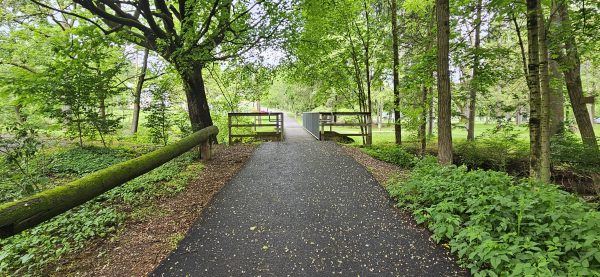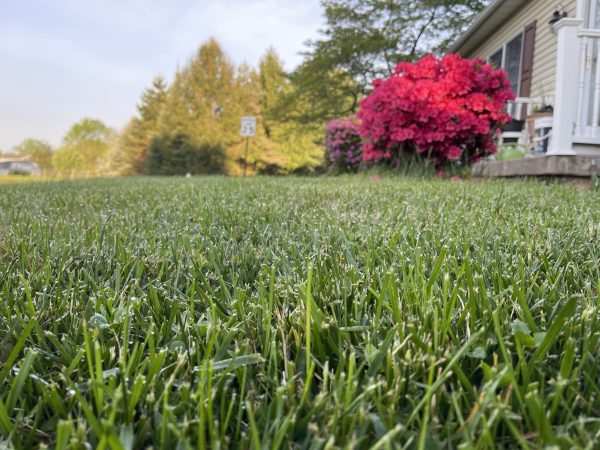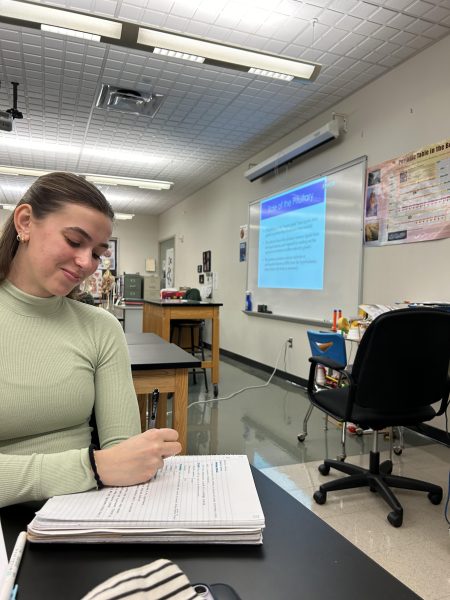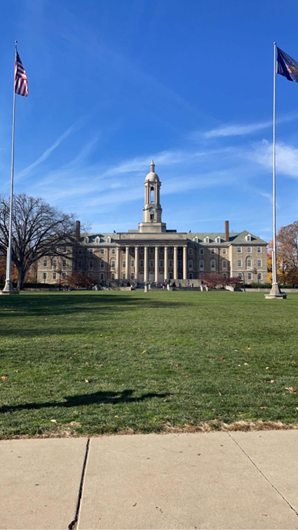There is No Place for Religion in Politics
Why Church and State Should Stay Separate

MalNino is licensed under CC BY-NC-ND 2.0.
9/11 American Flag
For many, religion is not only a temporary practice but a lifestyle. It allows people to lead with a sense of purpose, hope, and security. However, religion has no place in the setting of governmental policy, and introducing one’s own moral and religious beliefs into politics can limit perspective and violate components of our First Amendment in the Constitution.
Opponents of religious involvement in politics provide many reasons as to why combining church and state can be dangerous, but the main issues for opponents include the following: Alienation of those who don’t believe in a certain faith, justifying all actions in faith, endangering religion and its authenticity, and lacking perspective. People fear that if politicians create policies based on their religious beliefs, it can lead to policies that aren’t authentic to the average American citizen. For example, a controversial topic in American politics is abortion, and opponents fear that even if a politician’s religion doesn’t support abortion, it may jeopardize the rights of those who don’t practice that specific religion. Additionally, opponents of religious involvement fear religious leaders endorsing specific political candidates. It may divide congregants with differing political views and may also be unfair to taxpayers if a religious institution is supporting a specific candidate they don’t support. Charles Haynes, a First Amendment scholar, noted, “When they endorse or oppose political candidates or fund campaigns, they risk becoming extensions of political parties and interests.” Although the IRS maintains the right to check these institutions, if there is a public complaint, realistically, they’re unable to check if every worship center is ethical. However, supporters believe it’s fair if religious leaders, like pastors, express their political opinions freely like any other American. Paul Blair, the pastor of the Fairview Baptist Church, stated, “I don’t cease to be a citizen when I step into the pulpit… I don’t lose my constitutional rights when I step into the pulpit.”
Pennridge High School senior, Taylor Landis, noted, “Many use religion in order to justify their actions, and since they were born on those ideals, it’s how they proceed with politics… but everyone is raised to express their opinion in the way they see best.” Landis continued to express that everyone has the right to believe what they wish and shouldn’t create a policy with that bias. Another Pennridge High School student, Robin Reid, had a similar opinion. In her interview, she noted, “In America, we have no official religion and to show preference to one religion is a disservice to members who don’t follow the religion the government is showing preference to.”
Although some may believe that not being able to use their religion to guide their policy-making is unfair and a violation of their first amendment right, creating policy with religious morals is never for the benefit of the greater good. Policy, no matter what you believe, should serve all Americans.
Sources
Religion in politics. (2004, August 13). Retrieved January 11, 2023, from https://icof.infobase.com/articles/QXJ0aWNsZVRleHQ6MTYzODQ=.
Coe, Kevin, and David Domke. “The Role of Religion in Politics Has Grown.” How Does Religion Influence Politics?, edited by James D. Torr, Greenhaven Press, 2006. At Issue. Gale In Context: Opposing Viewpoints, link.gale.com/apps/doc/EJ3010411220/OVIC?u=perk75268&sid=bookmark-OVIC&xid=3ec0c75e. Accessed 11 Jan. 2023. Originally published as “Think Religion Plays a Bigger Role in Politics Today? You’re Right. Statistics Prove It,” History News Network, 2008.
Pastors and politics. (2008, October 31). Retrieved January 11, 2023, from https://icof.infobase.com/articles/QXJ0aWNsZVRleHQ6MTYzMzk=.
Separation of church and state. (2013, January 14). Retrieved January 11, 2023, from https://icof.infobase.com/articles/QXJ0aWNsZVRleHQ6MTYyNjM=.
Isabella White, Grade 12. Interests/hobbies include Mini-THON, buildOn, Key Club, NHS, Student Council, working two jobs, hanging out with friends and...









